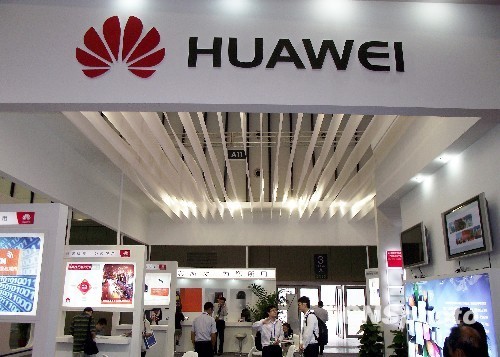No smoking gun in US report: US columnist
- By He Shan
 0 Comment(s)
0 Comment(s) Print
Print E-mail China.org.cn, October 10, 2012
E-mail China.org.cn, October 10, 2012

After a nearly year-long investigation, the U.S. issued a 46-page report that accused Chinese telecom equipment manufacturers of posing a security threat to the U.S., but failed to provide any compelling evidence that could back up these allegations.
For the past two days the U.S. IT industry has been buzzing about the groundless U.S. accusations against China's Huawei and ZTE. Forbes columnist Dan Ikenson suggests in an article published on October 9 that the report was more like the U.S. handing out a beating.
Here follow a compendium of opinions and viewpoints put forward by the columnist, as well as a raft of netizens' comments.
"There is no smoking gun in the report, only innuendo sold as something more definitive," wrote the columnist, "We have evidence of a U.S. trade protectionist agenda and not national security," says the columnist
"The most damning evidence against Huawei and ZTE is that the companies were evasive or incomplete when it came to providing answers to questions that would have revealed strategic information that the companies understandably might not want to share with U.S. policymakers, who may have the interests of their own favored U.S. telecoms in mind."
"Vulnerabilities in communication networks are ever-present and susceptible to insidious coding, back doors, and malicious spyware, regardless of where the components are manufactured. At best, shunning these two companies will provide a false sense of security."
He went on to point out the Chinese telecom companies' inexperience and lack of political sophistication. "It was Huawei – seeking to repair its sullied name and overcome the numerous obstacles it continues to face in its efforts to expand its business in the United States – that requested the full investigation of its operations and ties, not anticipating adequately that the inquiries would put them on the spot. What they got from the investigation was an ultimatum: Share strategic information about the company and its plans with U.S. policymakers or be deemed a threat to U.S. national security."
A netizen referring to himself as "Mike McKay" commented the article: "I had not been following this controversy until I saw the 60 Minutes piece. I am in the IT industry and the "charges" just do not ring true. It sounded to me like Cisco has convinced someone that a potential competitor, with superior products, is a threat to national security. Looks like a good lobbying job to me!"
Another netizen, posting under the name "Lok," wrote: "More 'fire sale' in USA and Europe for a long time yet. Fancy why their governments do not throw a protective/preventive wet blanket over the lot and declare it goes against national interest to allow any investments by Chinese companies - large are minnows. They should also make it treason and an unpatriotic criminal offence if they citizen are caught working for any Chinese owned companies and/or businesses in the USA and overseas. Yes take it further and make it illegal to import or consume any "Made In China" goods in the USA."





